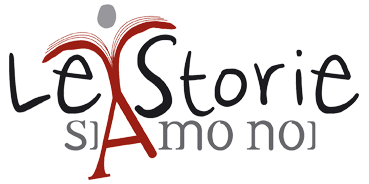The literary text as educational tool in situations of youth distress. A research in the field
Magda Sclaunich – Researcher (University of Trieste)
Reading is an activity that can touch in a very particular and intense way the interior world of an adolescent. In reading, the subject is not just a passive observer about the story, but he becomes active part in it, he feels emotions and feelings originated by what he read.
The process of construction of a personal identity has a primary role in the adolescence phase and this asks for comparing with the others (Palmonari, 2001) and this is activated also in reading. The reading, in fact implies to know the others’ experiences given in the story and this becomes very productive and formative if then the reader has to tell his own experiences, or even more, he has to compare his situation with what he read.
From these thoughts about the function of the literature and the potentiality of this in education even with bullysm situations (Pignatti e Menesini, 2000) it has been planned an intervention of research-formation with a 13 years old boy, F., who had behaved with bully episodes against the fellows.
It has been chosen a literary text, Il Fu Mattia Pascal, that for its content is particularly suitable to be used as a tool to improve the emotive, social and relational competence, aspects that are considered crucial in a curriculum built to intervention against bullysm (Menesini, 2003).
The work has been done, twice a week, for seven weeks: every meeting, of about an hour, included the reading of two or three chapters, according to the difficulty and length, and after that, a series of questions, properly prepared to activate reflection and discussion.
The work has permitted to reach good results on two sides:
- It has permitted the adult to know deeply F.
- It has been for F. a important opportunity in education/formation.
About the first side it emerged that
- F. is, as every adolescent, particularly sensitive to friendship
- He is not able to deal with problematic situations, he prefers to adopt the strategy of escaping
- He is sensitive to success and approval even if this happens against somebody else.
- He has clear ideas about his image in fellows, teachers and family.
- He is aware of his behaviour inadequacy
- He is going to change his behaviour to deal successfully with high school.
About the second side, the interviews after the reading allowed F. to think about important issues as friendship, the way to deal responsibilities, the imagine of yourself, all aspects that improve the emotive, social and relational competences.
The work done permitted F. to be aware of his own behaviour and to begin to read and understand it. It worked as a mirror through that he was able to look himself and his history. This tool brought the subject to think on his personal experiences and be able to experiment processes of auto -evaluation.
The activity of assisted reading helped F. to will to use the tool writing to tell himself. This implies that the proposed activity has been felt by F. as a important opportunity to express himself and share his feelings also by the identification with the character of the story.
After this experience of research/formation, we can say that the literary text can be a useful tool in dealing with distressed youth.
Of course it’s important to choose carefully the material to use and not to forget that this is just one, among a lot of possible tools suitable to manage complex situations like bullysm and just it, it’s not enough.

Restiamo in contatto